#Players of ttrpg
Text
D&D campaign
Hi, to all the fellow D&D and tabletop players out there. I am currently looking for some players to start a new campaign. I ask that everyone is 20+
The synopsis of the campaign includes exploring cosmic horror and mystery, and typical d&d shenanigans. It is set in a homebrew world, with access to homebrew races and classes. I will be leaving the link to fill out the application along with the hook for you all.
Each and every one of you have since had a run in with a god of death. Whether it be you finding yourself in an accident, you were murdered, you had a hand in taking your own life, or another method. Whichever way you found yourself to the gates of the underworld, ready to face judgement and see which afterlife you landed up in...
An entity inferred.
Before judgement could be passed, this entity returned your life to you and slighted death. It offered no grounds of refusal, and demanded you play this game and have a second choice at life. In return for doing so, it would grant you one boon of your choosing.
Would you like to be the most intelligent person alive? Would you like a cursed object? Would you like the ability to see through glamors and reveal a divine being in human disguise? The choice is endless on what you could ask for. It seems more than happy to complete your request.
The only catch that comes with this opportunity? You cannot ask for its name and true identity.
You all thought yourselves the only ones but... you find yourself all with the same invitation, asking you to the same place. You find one another, and perhaps, just perhaps, you might be able to put your heads together and begin undoing this elaborate mystery you find yourselves in.
https://docs.google.com/forms/d/e/1FAIpQLSdNeIuWzd3ig5iITn1-BVbzzZ93rntHLAYUGvl_JUMx3vk5Fw/viewform?usp=pp_url
#Lfg#dungeons and dragons#Dungeons and dragons group#Dnd#D&d#Ttrpg#Dnd advertisement#Lfg group#Lfg campaign#Dnd campaign#Players of ttrpg#Dnd group#D&d group#tabletop games#roleplay community#Roleplay
8 notes
·
View notes
Text
'the GM is also a player' is something every ttrpg writer should take to heart. just becase d&d treats their GM as (as i have often said) an unpaid game designer doesn't mean you have to
#tattletxt#ttrpg#i specifically called the 'liege player' in most trusted advisors that intsead of 'GM' or similar for this exact reason
3K notes
·
View notes
Text

NPCs for my VTM game 🧛🏻🏛️🩸✨
#at least… the ones that have made an appearance so far hehehe 👀‼️#I love this game and my players so much hehehe can’t wait to torment them further!!#digital art#digital illustration#oc#oc art#vtm art#vtm#vtm ocs#vampire the masquerade#ttrpg#ttrpg art#ttrpg character#dc by night
3K notes
·
View notes
Text
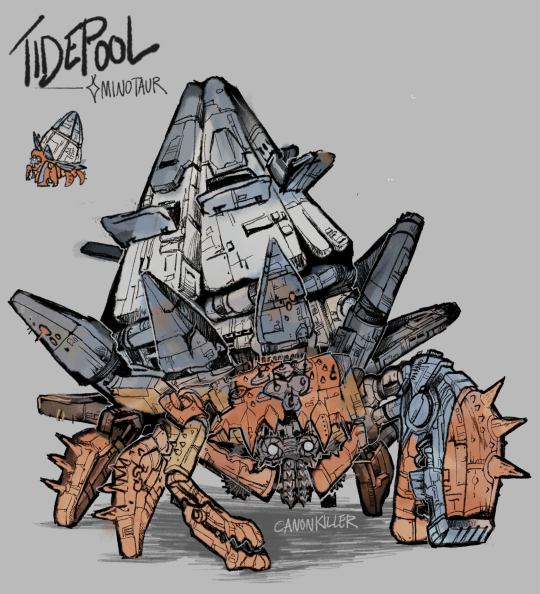
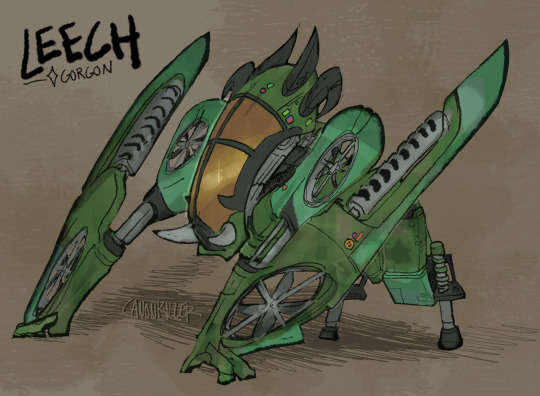
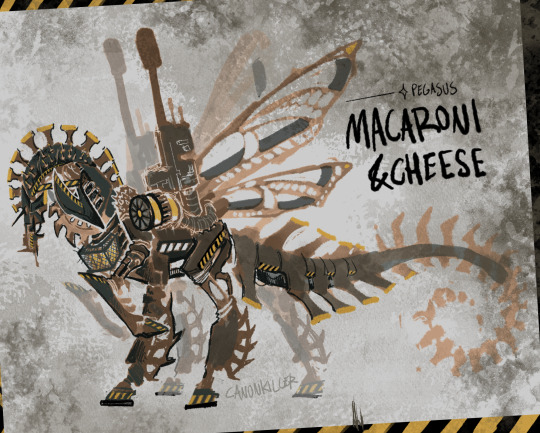


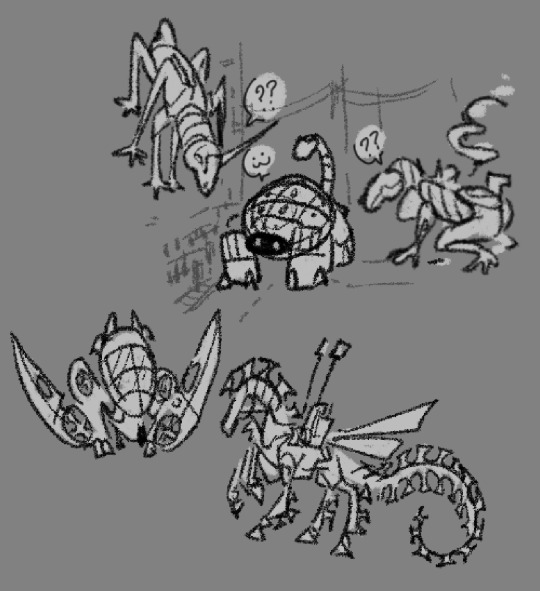
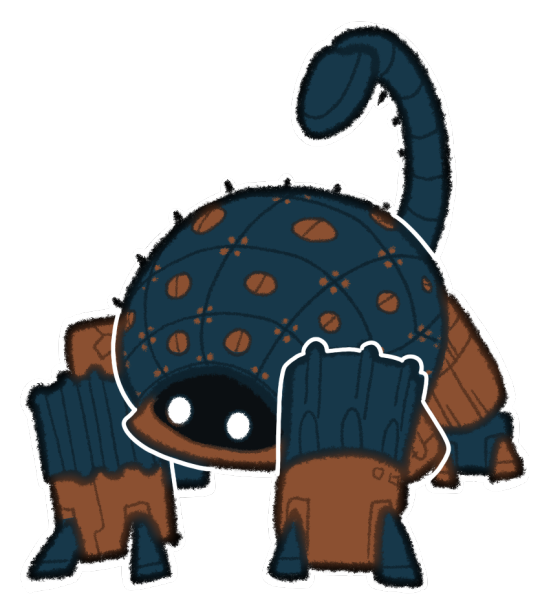
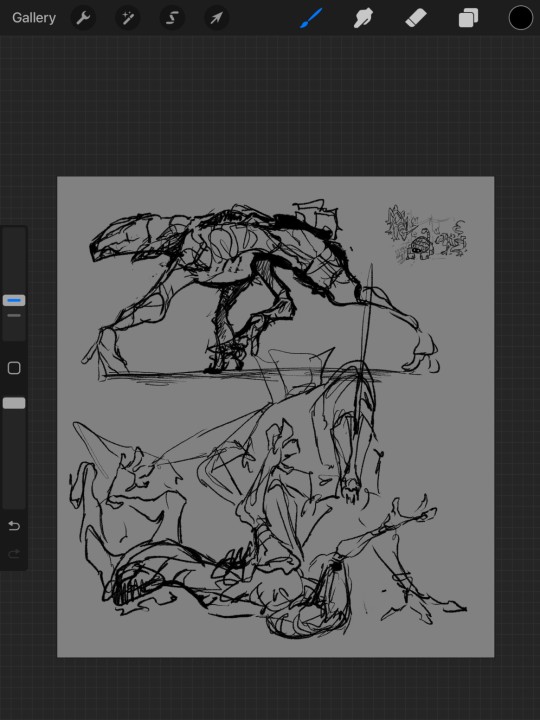
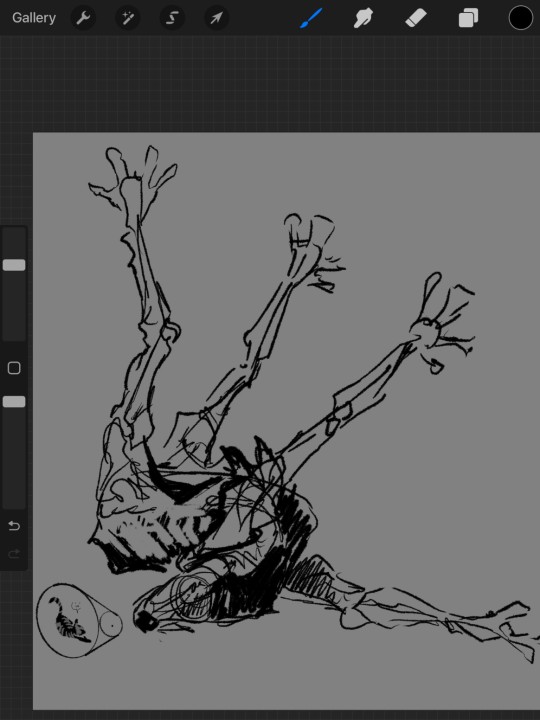
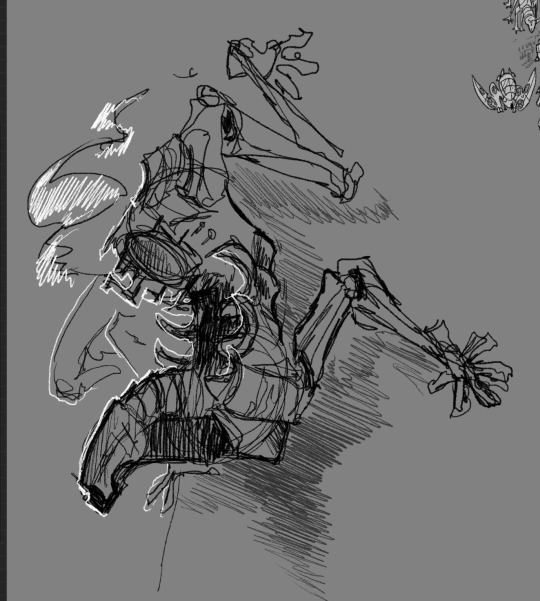
world's most normal animals
(if you want to use my concepts in your ttrpg campaigns you should 1. ask me 2. update me on events like a little podcast 3. give me money about it. I also take commissions once my queue is cleared!)
#my art#lancer rpg#lancerrpg#lancer#beam saber#afi#mechs#mecha#i think the horus pegasus is an animal#ft two of the player Beasts#ttrpg
1K notes
·
View notes
Text
One thing that I've noticed about Baldur's Gate 3 is that sometimes it really does feel like your companions are being piloted by other players. Sure, there's the standard approval system that most CRPGs have nowadays, but there is an even more powerful mechanic at play here: giving the player the option to shut the fuck up.
There are tons of moments when your companions are forced to confront parts of their past they can't shake. You always have the option to speak up for them if you like, but most times you also have the option to say nothing (sometimes the prompt is literally "say nothing," sometimes it's "let [character] handle this."
And this is such an important tactic of playing at the table: turning the spotlight onto to another player and letting them handle it. Because the story isn't just about your player character, it's about all of you.
When you do choose that option, I've noticed more often than not that the character approves of you letting them take the wheel. When you try to speak up for them, they may not express disapproval, but it comes up in the fiction. I tried to defend Astarion once and an NPC was like, "You're letting swine speak for you now?" and Astarion shouted, "I don't need anyone to speak for me!" He's right! This is his moment! Why did I say anything?
Baldur's Gate doesn't have to do this! There's no actual person piloting your companions. And in games a lot of people will say it's usually best practice to keep the spotlight on the players. But BG3 is a video game based on a tabletop game, and I think this is one of the main differences between the two. Maybe it's a tiny detail, but giving the player the option to relinquish the spotlight (and oftentimes encouraging and rewarding it) is such an incredible detail, and faithful to the medium the game is trying to emulate.
It's also a great lesson for everyone who wants to be a good player at the table: if it's not your scene, consider shutting up and letting the spotlit player handle it.
#baldur's gate 3#bg3#spoiler-free musings#if you look at anything i've ever written about ttrpgs#every bad experience i've had can be found written between the lines#one time another player killed an npc from my backstory before i had the chance to talk to him!
2K notes
·
View notes
Text

Valaeth Salutaris — renowned drow playwright & comedian in one of my minicampaigns 🌸✨
#artists on tumblr#digital art#digital artist#dnd#ttrpg#dnd art#ttrpg art#dungeons and dragons#elf#drow#character design#dnd character design#my art#feast of fortunes#world of khaless#outfit design#i love designing outfits it's my FAVOURITE part of creating characters heehee#valaeth is a pathetic little guy and loved by the players
1K notes
·
View notes
Text
"Mr. President, unhand their titties!"
-the Nova, after the cat started clawing the Janus' chest
241 notes
·
View notes
Text
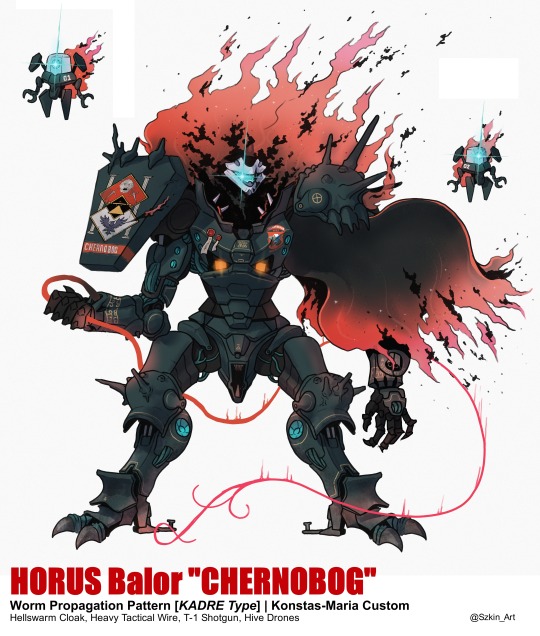
#horus balor#horus#lancer rpg#lancer art#my art#ttrpg art#ttrpg character#mecha#giant robot#digital art#illustration#artists on tumblr#scifi art#players reached ll2 time for upgrades baybey
874 notes
·
View notes
Text
New Solo RPG: The Tower in the Meadow
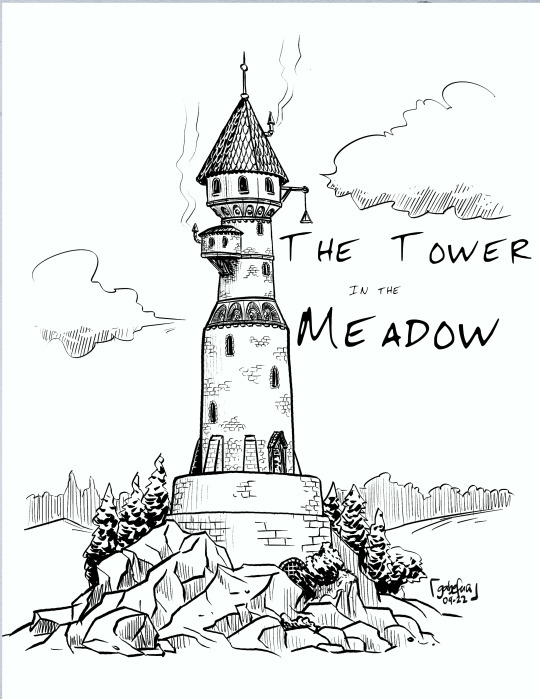
The Tower in the Meadow is a single-player RPG utilising the For Truth's Sake system pioneered by @hmooncreates
You have been invited into a mysterious, magical tower to de-mystify life there. As you prepare an account of your months in residence, you'll befriend all manner of mages, spirits, and perhaps even learn a little bit about gardening from the resident dragon!
You can get it below for its standard price of $1.99
OR if that's a bit much for you right now, here's a special code to get it for 20c!
And if you'd prefer a code to get it totally free, I can do that too! Check out the link below:
196 notes
·
View notes
Text
GM: Ok, so as the party approaches the clearing, there are a myriad of statues holding twigs, all seemingly creating a canopy over the trail.
Player: I roll for perception. It's a 26.
GM: You see one amongst them has an empty ha--
Player: I pick up a twig. I climb up the statue and put it in the statue's hand.
GM: ....
Player: :)
GM: ..... The statues all turn to point in a direction off the path-- how did you???
Player: Yahaha. Bitch.
378 notes
·
View notes
Note
Games with an atypical division of Player/GM responsibilities? For example, in Fellowship, the players have final say in lore/world building questions, not the GM. (Not counting GMless games, which have atypical GM duties by default)
Alternatively, if that's too niche: any games explicitly designed for rotating GMs and/or 'West Marches' style campaigns.
THEME: Unique Player Responsibilities / Rotating GMs
Hello there! I hope to do your ask justice, although I feel more at home talking about the first half of your question than the second. I’ll ask my followers to supply some more suggestions in the tags/reblogs, and throw at you what I have!
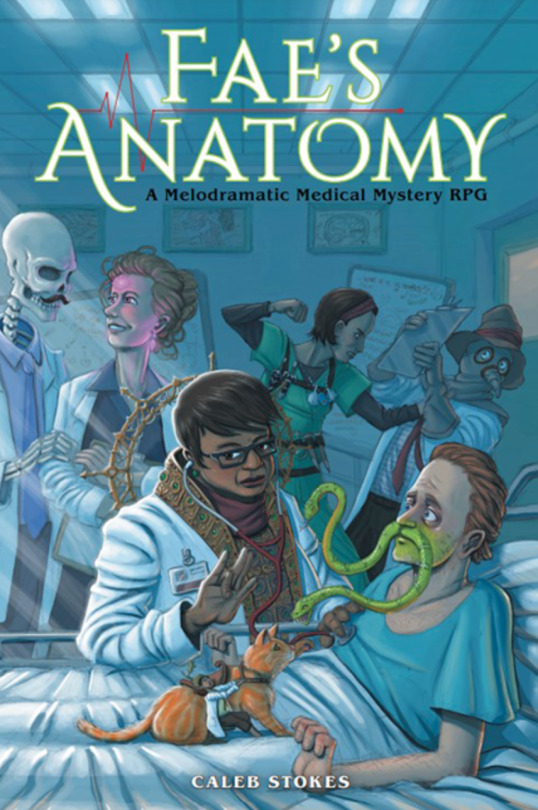
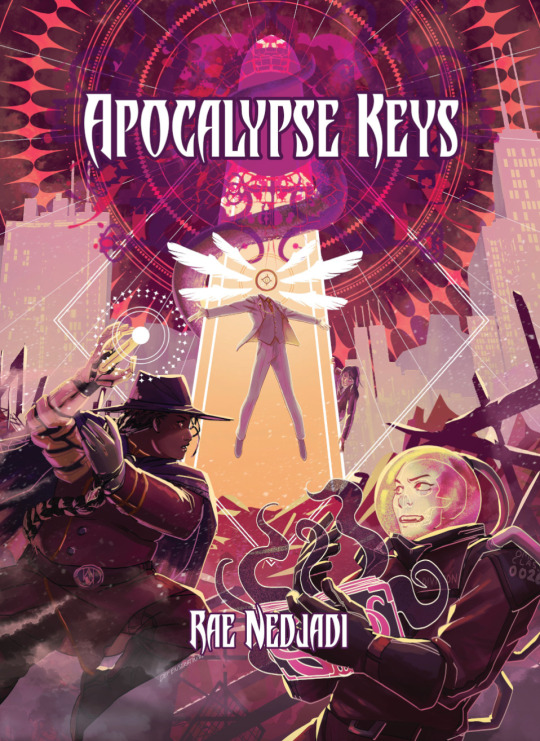



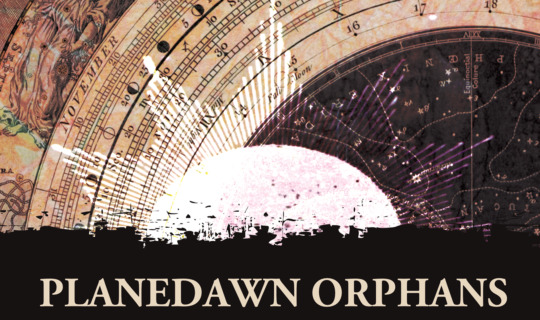
Fae’s Anatomy, by Hebanon Games.
Fae’s Anatomy is a comedic storytelling RPG wrapped around a challenging logic puzzle, recreating the high-stakes melodrama of medical procedurals like Grey’s Anatomy, House, and General Hospital.
Anybody can be an expert in Fae’s Anatomy. The game is set in a world where all forms of magic, spirituality, and mysticism are science. Science? Just another form of wizardry. Quackary, superstition, and pseudo-science work, but so does chemotherapy, antibiotics, and sound medicine.
In many ways, I’d say Fae’s Anatomy feels like a typical ttrpg: you have one person giving hints and clues to the rest of the players, who will use certain skills and abilities to solve a problem. But the closest role to the GM role - the Patient - is simply different from the doctors in what limits them. The Patient is suffering from some kind of mysterious illness, and while they have a little bit of information available to their general illness, the app presented to them to help them run through the diagnosis keeps the solution obscured enough to keep them on their toes. The Patient also has to role-play their symptoms well enough to help point the doctors in the right direction. In some ways, it feels like Fae’s Anatomy is an elegant form of charades - and if you want to hear how this game plays, you can check out the special episodes that Lawful Great Adventures recorded using this game!
Apocalypse Keys, by Rae Nedjadi @temporalhiccup
The Doomsday Clock is ticking down and emotions run high as you and your team of DIVISION agents struggle to find the Keys before the villainous Harbingers unlock the Doors of Power and bring about the apocalypse.
As an Omen class monster, you are the only thing capable of holding back the apocalypse. Combat occult threats and investigate supernatural phenomena alongside your team of supernatural agents working for the shadowy DIVISION. But in a world that shuns monsters like you, only your deepest, most heartfelt bonds can grant you the power to stop those who seek to unlock Doom’s Door.
There are two ways in which Apocalypse Keys uniquely empowers the players in ways I consider slightly unorthodox. Firstly, there’s the fact that the lore of DIVISION, the shadowy government agency that holds your monsters leash, isn’t fully fleshed out at the beginning of play. It’s slowly uncovered with each mission and playbook advancement, with the players being presented with questions and workshopping the answers together.
Second is the mystery mechanic, which was popularized by Brindlewood Bay and The Between, and also made its way into games such as External Containment Bureau and Bump in the Dark. While the GM designs clues and thinks about what kinds of Harbingers might be responsible for this specific apocalypse, it’s up to the players to decide what the answer to the mystery actually is - and it’s the player’s roll that determines how accurate they are.
Brinkwood, Blood of Tyrants, by Far Horizons Co-Op.
Mask up. Spill blood. Drink the Rich.
The world is not as it should be. The rich feed, literally, upon the poor, as blood-sucking vampires who barely bother to conceal their horrific, parasitic nature. The downtrodden peoples of the world struggle under the burdens of rent, payable through the sweat of their labor or the blood of their veins. Evil has triumphed. Many have given in to despair. But all is not lost.
In Brinkwood, you take on the role of renegades, thieves, and rebels struggling for freedom and liberation in a castylpunk world controlled by vampires. Radicalized by tragedy, you have taken up arms and fled into the forests, where you were taken in by unlikely allies - the fae, forgotten creatures of myth - who offered a different path and the means to fight back against your oppressors. Masks, forged of old wood and older magic, are the final tool left to fight a war long ago lost. If you wear them, they will take their price, etching themselves upon your very soul. But they will also let you spill the blood of the rich and powerful vampires that now rule the land, and from that blood strengthen yourself and your movement.
There’s a lot of things about Brinkwood that I absolutely love, from the way the mask playbooks are meant to be swapped among the characters/players with every mission, to the slow but steady revolution that you build by fostering connections with various factions in the Bloody Isles. But for the purpose of this request, we need to talk about Your Exquisite Fae.
Your Exquisite Fae is the process by which the group collaboratively creates a faerie patron, otherworldly and uniquely powerful. It’s inspired by the game Exquisite Corpse, which has each player draw a piece of a drawing without knowing what the others have already created. In Your Exquisite Fae, the players receive answers to prompts written by other players but aren’t given hints as to what the context was - and then they elaborate on what those answers mean. For example, one player might state that the Fae has eyes that reflect the night sky, gleaming like a thousand distant starts. The second player might decide that those eyes see the deepest fears of the enemy, giving the group an advantage at finding weaknesses and secrets when spying on vampires.
Ars Magica, by Atlas Games.
Ars Magica is the award-winning roleplaying game by Jonathan Tweet and Mark Rein•Hagen about wizards and their allies in Mythic Europe. This flexible, deeply built world can support games that are historically accurate or fantasy-based, epic or small scale, political or personal.
Players work together to tell the story of their covenant — all of the magi, their companions, and grogs. This history can span decades. It might be heroic, tragic, or both in turn. The covenant could influence the entirety of Mythic Europe or the fates of a small corner of the world.
Spells will be cast. Duels won and lost. Houses may rise and fall. But magic is forever.
The last time I talked about this game, one of my followers pointed out that this was an incredibly complex game that was designed to accommodate rotating GMs. The game styles itself as a troupe-style game, which means you’re not just responsible for your mages, but also your companions and servants. If you want a game with complex relationships and big-picture conflicts, this might be the game for you.
Slugblaster, by Mikey Hamm.
In the small town of Hillview, teenage hoverboarders sneak into other dimensions to explore, film tricks, go viral, and get away from the problems at home. It’s dangerous. It’s stupid. It’s got parent groups in a panic. And it’s the coolest thing ever.
This is Slugblaster. A table-top rpg about teenagehood, giant bugs, circuit-bent rayguns, and trying to be cool.
It may look like a small thing, but during crew creation, each character playbook has specific roles in determining the crew’s resources and relationships. The Grit picks a faction that trusts the crew. The Guts chooses a faction that the crew has somehow annoyed. Each player draws a portal between the known multiverses, but the Smarts draws two. The Chill has final say over where you hang out when you’re not Slugblasting, and The Heart has final say over your crew name.
I’ve drawn direct inspiration from this setup in my own game that I’m playtesting, by giving each playbook final say over some element in the world, and I think it really boosts player agency and gives them control over the kind of story the group wants to tell.
Planedawn Orphans, by Sharkbomb Studios.
Planedawn Orphans is a campaign kit that helps you prepare a campaign for the fantasy role-playing game of your choice. It provides a flexible and versatile framework to start a campaign. The campaign kit will help you get started and provide structure and support, but some assembly is required.
Set in the Planar City, a strange melting pot that connects the vast diversity of the multiverse. You all play Planar Orphans stranded in this city, your original home worlds destroyed, corrupted or lost. A mysterious Patron has brought you together, provided you with a base of operations and tasked you to complete a Planar Key. This key will let you create a new plane for you and your fellow refugees. Your quest will bring you to exotic places filled with strange creatures and bizarre phenomena.
This isn’t a standalone rpg, but rather a campaign kit for whatever system you like - or even multiple systems! I’m recommending this toolkit because I’m actually planning to use it to run a series of rotating-gm games later this year, with a friend of mine. You’re building your own custom dimension by jumping into a series of vastly different worlds, and your home base is built collectively. There’s a lot of player agency and GM agency here, as players have plenty of control over their home dimensions (since they can’t ever go back) and the GMs can take turns designing custom worlds for the party to jump into. I definitely recommend checking it out.
Also Check Out
Asymmetrical Games Rec Post
#rotating gms#unique player responsibilities#tabletop games#indie ttrpgs#dnd#game recommendations#asks#indie ttrpg
185 notes
·
View notes
Text
If you ever feel like maybe it's a little embarrassing to do voices in d&d, like maybe you won't do it good enough or people will think you're weird, you will never be more embarrassed than my college rhetoric TA. This girl was maybe 23, tops, pale white girl with red hair, stood out in the room like a sore thumb. She was smart, don't get me wrong. Had the course material memorized (probably better than the professor, honestly). But the first time we went through the "lineage" of Greek philosophers and got to Cicero she busts out with the best Cicero (TeS) impersonation I've ever heard in the middle of the class. Not much, just a "what?! Cicero?!" Like someone was accusing her.
No one expected it. The Prof looked bewildered. She mumbled her explanation about how she and her bf had been playing a lot of Skyrim lately.
Anyway. Tl;Dr. You will never be more embarrassed than Cicero, my rhetoric TA.
#d&d#dnd#dungeons and dragons#ttrpg#dm advice#gm advice#doing silly voices is a gift#treasure those silly voices that your players and gm do
326 notes
·
View notes
Text
briefly stepping out of character to check in with each other is good for
dungeons and dragons
bdsm
minecraft roleplay
actors in emotionally taxing scenes
telling a therapist about trauma if you're not great with vulnerability yet
bdsm again
#twitch chats must learn to play TTRPGs or else die by my hand#qsmp#forever player#cellbit#qsmp forever#philza minecraft#philza#@chat @twitter -- THEY'RE FRIENDS. IT'S MINECRAFT. CALM DOWN.
458 notes
·
View notes
Text
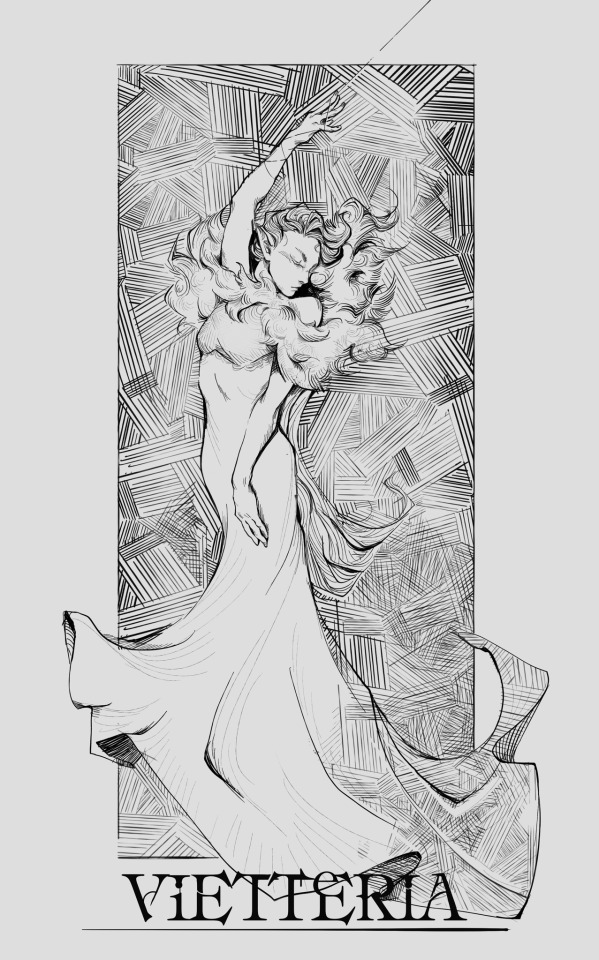
Vietteria Osira
A Defiance of Fate
#character art#digital art#original character#oc#oc art#dnd#dnd art#dnd character#dungeons and dragons#ocs#changeling#changeling oc#dnd character art#dnd oc#player character#ttrpg character#ttrpg#toppi inspired#character illustration#dnd illustration#illustration#half elf#Vih#Vietteria#dnd5e#5e
164 notes
·
View notes
Text

Been a bit, but I finally resumed drawing the team! This time it's our local ex-Karrakin-Baron-turned-fitness-junkie-and-shoe-magnate, Artyom, otherwise known by the squad as Peepaw. Picture Teddy Roosevelt crossed with Gwyneth Paltrow and that's Artyom. Needless to say he's not in line to inherit anything anymore.
Despite Artyom being a more humorous character, he might actually have the most dramatic background out of all of us. The GM definitely has fun playing Game of Thrones when it comes to Karrakis...
#lancer rpg#lancerrpg#lancer ttrpg#lancer#karrakin trade baronies#ktb#karrakis#ssc#death's head#despite swoosh's appearance artyom doesn't have any license levels in balor#i think he/the player just really liked balor's fire thing and wanted the aesthetic XD#i also have no idea why it has a dog's head#arty just likes dogs#he uses them as a unit of measurement
93 notes
·
View notes
Text
Actually: it frustrates me how with characters that have high intelligence or charisma, the player of said character is expected to also be able to be clever or charismatic or what-have-you in the moment. I wish I could elaborate my thoughts on this but alas, I cannot.
#eric finally speaks#ttrpg#dnd#vtm#as someone whos anxious and isnt very smart it frustrates me bc i want to play cool characters like that#i get other people want actual lines to roleplay with as opposed to dice rolling for it but. yknow#you dont see a strength based character's player doing stuff with weights and all for their stuff#whatever sorry im just having a bad day ig so im here with this
108 notes
·
View notes